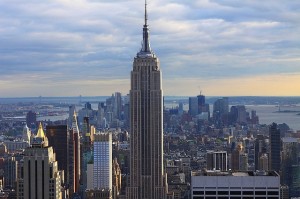People v Garay
2015 N.Y. Slip Op. 02672
New York Court of Appeals
Decided on March 31, 2015
Blog by: Stephen N. Preziosi Esq., Criminal Appeals Lawyer
The New York Court of Appeals refuses to vacate conviction based upon defendants mere denial of guilt and his trial counsels failure to preserve issues for appeal.
Issue: Whether the Supreme Court, New York County denied defendant a fair and public trial and whether?(1) his right to counsel under the New York Constitution (art. I, 6) was violated in connection with the trial court’s replacement of a sick juror with an alternate juror; (2) whether the court violated his right to a public trial under the Sixth Amendment of the United States Constitution by failing to consider reasonable alternatives to closure before ordering the courtroom closed during the testimony of two undercover officers; and (3) whether the court erred in summarily denying his request for a suppression hearing under CPL 710.60(3).
Summary: After a jury trial, defendant was convicted in the New York Supreme Court of criminal possession of a controlled substance in the fifth degree. He appealed arguing he was denied constitutional due process and a fair trial. The Appellate Division, First Department denied his appeal and affirmed his conviction. The Court of Appeals affirmed his conviction.
See Also:?Federal Sentencing Guidelines: Victims Counted Separately Under 2B1.1
 Holding: The Court of Appeals held that defendants deprivation to the right to counsel argument was unpreserved for appeal, the trial court did not violate his right to a public trial by closing the courtroom during the testimony of two undercover police officers to protect their safety and the integrity of ongoing investigations, and his mere denial of guilt did not raise an issue of fact sufficient to challenge the allegations of probable cause to arrest him.
Holding: The Court of Appeals held that defendants deprivation to the right to counsel argument was unpreserved for appeal, the trial court did not violate his right to a public trial by closing the courtroom during the testimony of two undercover police officers to protect their safety and the integrity of ongoing investigations, and his mere denial of guilt did not raise an issue of fact sufficient to challenge the allegations of probable cause to arrest him.
Facts: Defendant was tried for his alleged role in a cocaine drug ring. They were jointly tried. Garay was charged with conspiracy in the second degree (Penal Law 105.15); criminal possession of a controlled substance in the first degree (Penal Law 220.21 [1] ); criminal possession of a controlled substance in the third degree (Penal Law 220.16[1] ); and criminal possession of a controlled substance in the fifth degree (Penal Law 220.06[1] ).
Several weeks after the trial had begun, the trial court began the session by acknowledging that defendants trial counsel, Mr. Conway, was not present. The court then referenced an off-the-record discussion that was held that morning with both counsel, as well as an off-the-record ex parte communication the court had with a sick juror. The court stated that it had spoken with all the lawyers, including defendants counsel, and had advised them that one of the jurors had called in sick, and that the juror had stated that in no way could he make it to court that day, even if the trial were adjourned until the afternoon. The judge stated that he was going to replace the sick juror with the next alternate juror. Co-defendant Riveras lawyer objected to replacing the sick juror with an alternate and stated that he had conferred with defendants lawyer and that he believe[d] defendants counsel is agreeing to the objection as well. Riveras counsel suggested that the court postpone the trial for one day in the hope that the sick juror might return, and he also complained that discharging the sick juror would leave only one remaining alternate juror. He noted that the court had previously excused an alternate juror for psychological reasons and he had not objected, but that he was objecting to excusing this second juror. He argued that there were not many minorities on the jury, and that one of two black jurors would now be replaced by a white juror.
The judge explained that the trial was already going beyond the time that he had estimated for the jury, that he was concerned about losing more jurors, and concluded that the sick juror would be replaced. The court then directed that the jurors be brought in, to which co-defendants counsel inquired, Judge, are we waiting for [Garays counsel]? The record shows that right after this inquiry, counsel entered the courtroom, and thereafter the jury entered. After the jurors were seated, the court told an alternate juror: Youre going to take that seat right over there, number ten. That will be your seat for the rest of the trial. Defense counsel made no comment or objection. The People then called their next witness and the trial proceeded.
 Garay was acquitted of every charge except for criminal possession in the fifth degree. He was sentenced to time served (26 months). He appealed arguing (1) that his right to counsel under the New York Constitution (art. I, 6) was violated in connection with the trial courts replacement of a sick juror with an alternate juror; (2) that the court violated his right to a public trial under the Sixth Amendment of the United States Constitution by failing to consider reasonable alternatives to closure before ordering the courtroom closed during the testimony of two undercover officers; and (3) that the court erred in summarily denying his request for a suppression hearing under CPL 710.60(3). The Appellate Division affirmed, the Court of Appeals granted leave to appeal only to affirm.
Garay was acquitted of every charge except for criminal possession in the fifth degree. He was sentenced to time served (26 months). He appealed arguing (1) that his right to counsel under the New York Constitution (art. I, 6) was violated in connection with the trial courts replacement of a sick juror with an alternate juror; (2) that the court violated his right to a public trial under the Sixth Amendment of the United States Constitution by failing to consider reasonable alternatives to closure before ordering the courtroom closed during the testimony of two undercover officers; and (3) that the court erred in summarily denying his request for a suppression hearing under CPL 710.60(3). The Appellate Division affirmed, the Court of Appeals granted leave to appeal only to affirm.
Legal Analysis: First, the Court of Appeals held that defendants deprivation to the right to counsel argument was unpreserved for appeal. Pursuant to New York law, a criminal defendant must preserve an appeal by registering a protest at the time of a court ruling during trial (CPL 470.05[2]; People v. Medina, 18 NY3d 98, 104 [2011]). Here, the trial court replaced the sick juror in the presence of defense counsel who did raise any objection, including a deprivation of the right to counsel. It made no difference that defense counsel was not in the courtroom while the judge was stating on the record that he intended to replace the sick juror.
Second, the trial court did not violate defendants right to a public trial by closing the courtroom during the testimony of two undercover police officers. Applying the Waller test, the Court of Appeals found there was ample evidence in the record to demonstrate closing the courtroom was necessary to protect the safety of the two undercover police officers and the integrity of ongoing investigations. Further, defendants family was allowed to be present during the closed testimony (Waller v. Georgia, 467 U.S. 39, 48[1984]). Thus, it can be implied that the trial court, in ordering closure, determined that no lesser alternative would protect the articulated interest (People v. Echevarria, 21 N.Y.3d 1, 18[2013], quoting People v. Ramos, 90 N.Y.2d 490, 504[1997]).
Finally, the Court of Appeals agreed that the trial court properly denied defendants request for a hearing based on his motion to suppress physical evidence. Defendant was identified as conducting a large-scale cocaine operation, the police knew that the co-defendant would be driving defendant from the Bronx to Manhattan to purchase a kilogram of cocaine, and defendant was arrested in furtherance of this transaction. Defendants mere denial of guilt in the affidavit supporting his motion to suppress did not raise an issue of fact sufficient to challenge the allegations of probable cause to arrest him (CPL 710.60(1); People v. Mendoza (82 N.Y.2d 415 [1993]).

